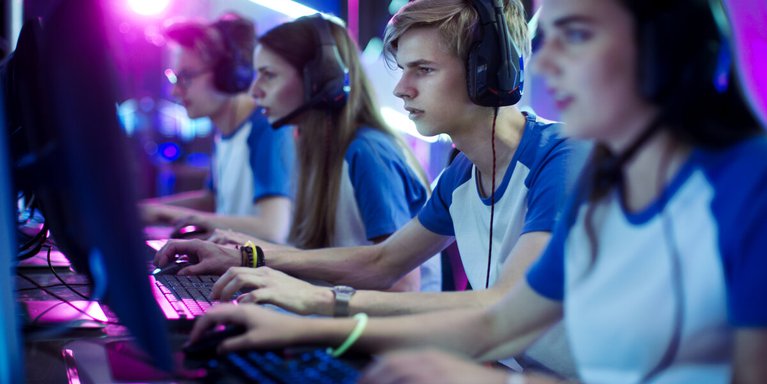Gaming has grown far beyond a simple form of entertainment. For many players, it represents a space for competition, achievement, and personal growth. The rise of competitive gaming, from online ranked matches to global esports tournaments, has highlighted the psychological factors that drive players to keep improving and striving for success. Understanding these factors not only reveals why gaming is so engaging but also shows how it mirrors real-world competition.
Why Competition Matters in Gaming
At its core, competition satisfies a basic human instinct: the desire to test oneself against others. In gaming, this takes many forms climbing ranked ladders, participating in tournaments, or even beating a friend’s high score.
Competition fuels motivation. Players invest hours practicing mechanics, studying strategies, and refining teamwork. The thrill of overcoming a challenge, whether big or small, makes the experience rewarding. Unlike casual play, competitive gaming offers measurable progress that motivates players to continue striving for improvement.
The Role of Achievement and Rewards
Psychologists often connect gaming motivation to reward systems. Games are designed with clear objectives, immediate feedback, and visible progress markers. Whether it’s unlocking achievements, reaching a new rank, or acquiring rare in-game items, players are constantly rewarded for their efforts.
This reward cycle creates a sense of accomplishment that is deeply satisfying. In competitive environments, these rewards also symbolize status. Achieving a top rank or earning a championship title isn’t just a personal victory it’s recognition within a community.
Stress and Resilience in Competitive Gaming
While competition is exciting, it can also be stressful. Intense matches test not only a player’s skills but also their mental resilience. Losing streaks, toxic teammates, or high-pressure environments can lead to frustration and even burnout.
However, many players learn valuable coping mechanisms through gaming. Resilience, patience, and emotional control are skills developed over time. These lessons often transfer beyond gaming, helping players handle pressure in school, work, or real-life challenges.
Community and Belonging
Competitive gaming isn’t just about individual performance it’s also about community. Teams, guilds, and online forums create environments where players can connect with like-minded people. Shared victories, collaborative strategies, and even losses build strong bonds within these groups.
Belonging to a gaming community provides a sense of identity and support. For many players, it becomes more than just a hobby; it turns into a meaningful part of their social lives.
Comparing Gaming with Traditional Sports
The competitive side of gaming often draws comparisons to traditional sports. Both require practice, strategy, teamwork, and discipline. Just as athletes train for physical performance, gamers train for mental sharpness, reaction time, and coordination.
Interestingly, the crossover between digital and traditional sports continues to grow. For instance, conversations around platforms like เว็บแทงบอลอันดับ 1 reflect how digital culture often intersects with traditional fan experiences. This blending of worlds shows that competition, whether on a field or on a screen, carries the same emotional weight for fans and players alike.
The Future of Competitive Gaming Psychology
As competitive gaming grows, the psychological side of play will gain even more attention. Esports organizations already hire sports psychologists to help players manage stress, build teamwork, and maintain focus. Mental health awareness in gaming is becoming a priority, ensuring that players remain healthy while performing at their best.
The integration of artificial intelligence and data analytics may also help players understand their strengths and weaknesses on a deeper level, making training more effective. With these tools, competitive gaming will continue to evolve as a structured and respected discipline.
Conclusion
The psychology of competitive gaming reveals that players are driven by far more than entertainment. They seek growth, achievement, recognition, and belonging needs that have existed throughout human history. Gaming simply provides a new arena where these instincts can thrive.
As the industry expands, competitive gaming will continue to mirror the challenges and triumphs of traditional sports, shaping not just how people play, but also how they think, learn, and connect with others.

